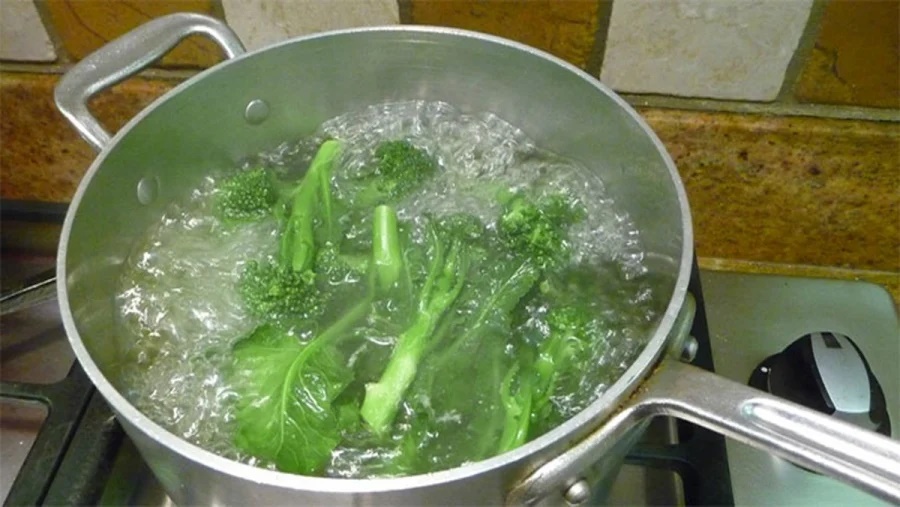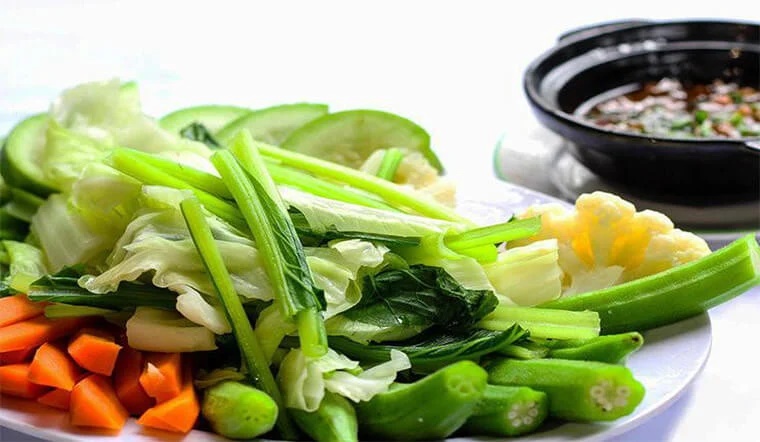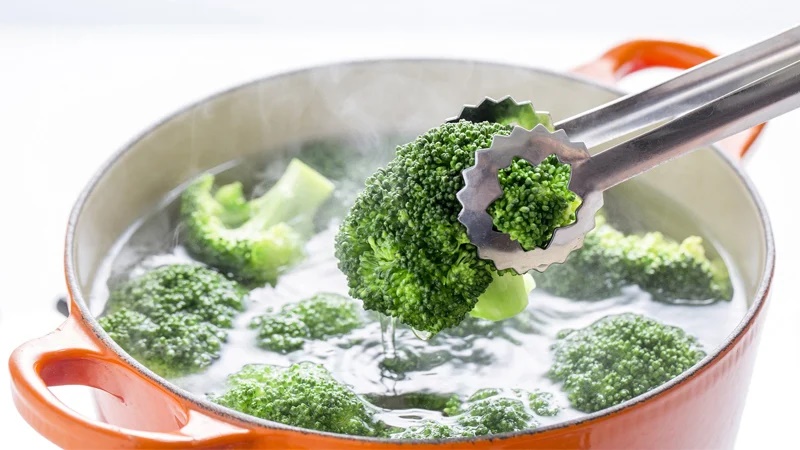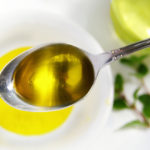Add cooking oil to the boiling water
When boiling vegetables, many people only add salt. However, you can also add a little cooking oil to the pot of boiling water. The cooking oil will create a thin layer on the outside, making your vegetables greener and shinier.
In addition, the layer of cooking oil can help the vegetables stay green for longer without changing color. However, the boiled water will have a layer of oil, so you can choose to use it or not depending on your family’s taste.
Besides the tip of adding cooking oil, you can also apply the following tips to make the boiled vegetables taste better.

Do not soak the vegetables in water for too long
Many people have a habit of soaking vegetables in water or saltwater to remove dirt and harmful substances. But soaking vegetables for too long is not good. Some types of vegetables can easily become mushy when soaked for too long. Soaking cut vegetables in water will cause vitamins to dissolve in water, and harmful substances can seep back into the vegetables.
If you soak vegetables, you should only soak them in saltwater for 5-10 minutes and then remove them. After rinsing the vegetables, you can cut them into smaller pieces if necessary.
Turn up the heat to boil the water faster
Usually, people think that as long as the water is boiling when adding vegetables, the vegetables will not be overcooked. But in reality, after boiling for about 5 minutes, the vegetables will start to lose their color. The reason is that many people don’t wait for the water to boil before adding vegetables.
Many people add vegetables as soon as the water starts to boil, which reduces the temperature of the water, and it takes a while for the water to boil again. Therefore, you should turn up the heat, wait for the water to boil, and then add the vegetables. The water will continue to boil quickly, and you just need to remove the vegetables when they are done.

Remove the boiled vegetables and soak them in ice water
When the vegetables are cooked, you can immediately remove them from the boiling water and soak them in a bowl of ice water. Doing so will help the vegetables remain crisp and maintain their natural green color.
In addition, it’s best to eat the boiled vegetables as soon as possible. Leaving them for too long will cause a loss of nutrients and they won’t look as appetizing.
Add salt to the boiling water for the vegetables
Salt not only enhances the taste of the boiled vegetables but also helps them retain their vibrant green color after cooking. You can add a little salt to the boiling water to preserve the color of the vegetables. The recommended ratio is a small tablespoon of salt for every half liter of boiling water.

Make sure the boiling water covers all the vegetables
If you use too little water to boil the vegetables, it can ruin your dish. The reason is that if you don’t have enough water to cover all the vegetables, the part of the vegetables that floats above the water will not be able to cook at the same time as the part submerged in water. As a result, the vegetables will not cook evenly.
According to Xe và thể thao
Tips on Selecting Healthy Cooking Oil and Safe Ways to Cook with It
A Taiwanese company has made a significant impact on the food industry through the recycling of over 700 tons of dirty oil, which has been exported to over 12 countries, including Vietnam. This has raised a few eyebrows among housewives, as cooking oil is an essential condiment in daily cooking. To ensure the safety and quality of their cooking oil, consumers should take note of the following advice.



































